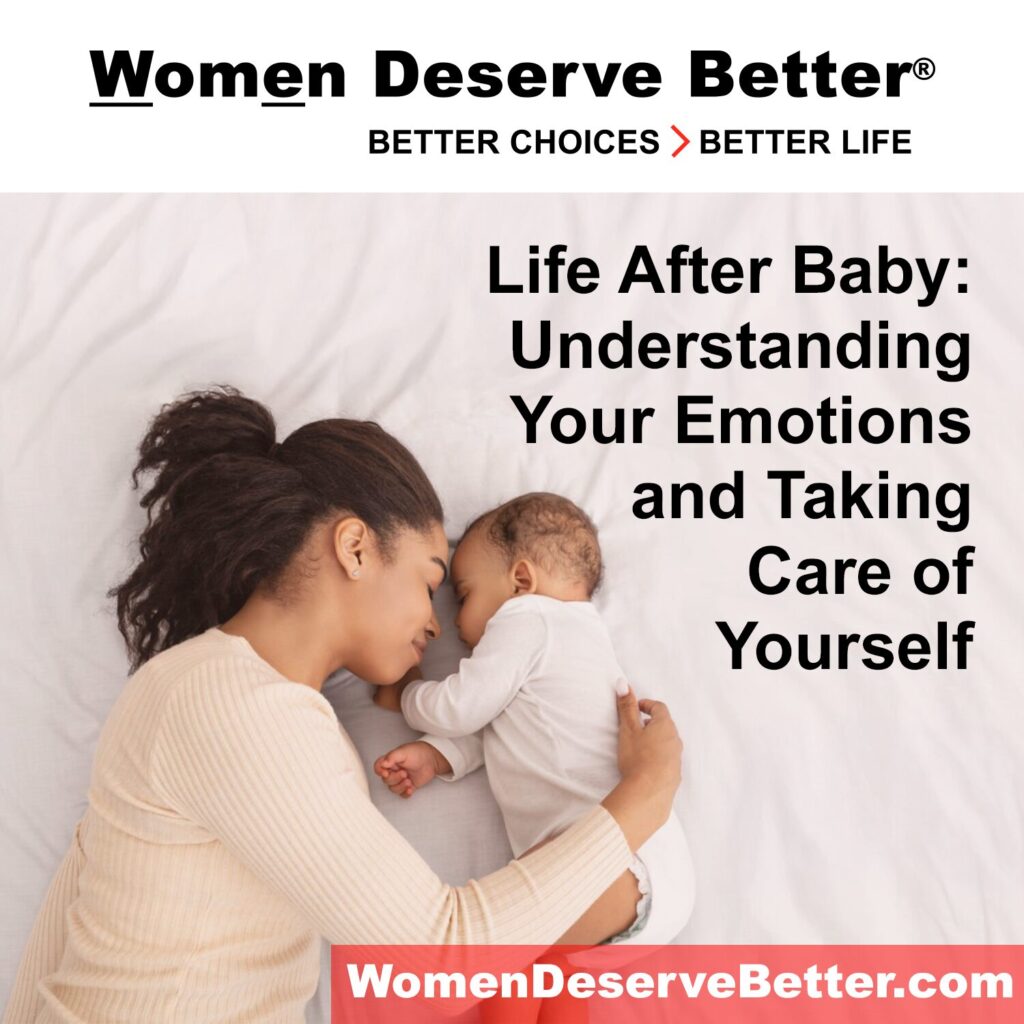
Being a new mother is one of the most rewarding, and challenging, phases of life. It’s full of new feelings and responsibilities. It’s normal to feel overwhelmed, tired, or unsure of yourself after having a baby. But sometimes those feelings may be signs of something more serious. Knowing the difference between the baby blues and postpartum depression—and knowing how to take care of your mental health—can help you feel better and be the best mother you can be!
Baby Blues or Postpartum Depression?
Many new moms experience what’s called the “baby blues.” This is a short-term period of emotional ups and downs that typically starts a few days after giving birth. It can include mood swings, crying for no clear reason, anxiety, and feeling overwhelmed. You might feel extra tired or emotional, but you’re still able to take care of yourself and your baby. Baby blues are very common—affecting up to 80% of new mothers according to ACOG—and usually go away on their own within two weeks, especially with rest and support.
Postpartum depression (PPD), however, is different and more serious. It can begin anytime within the first year after childbirth and doesn’t just go away without help. PPD can cause intense feelings of sadness, hopelessness, guilt, or emptiness. A mother with postpartum depression might have trouble bonding with her baby, experience changes in sleep or eating habits, or feel like she’s failing. In severe cases, she may even have thoughts of harming herself or her baby, which requires immediate medical attention. PPD can be triggered by hormonal changes, lack of sleep, stress, or a history of mental health struggles.
The key differences between baby blues and postpartum depression are how long the symptoms last, how strong they are, and how much they affect daily life. While baby blues are short-lived and mild, postpartum depression is more intense and can interfere with daily functioning. If emotional struggles last longer than two weeks or begin to feel overwhelming, it’s important to reach out for help. With treatment—like counseling, support groups, or medication—recovery is possible. No mom should suffer in silence, and asking for help is a sign of strength, not weakness.
What To Do If You Think You Have Postpartum Depression
First, don’t blame yourself. Postpartum depression is a medical condition. It doesn’t mean you’re weak or failing as a mom. Many women experience it, and it can be treated.
Start by talking to a healthcare provider. Be honest about what you’re feeling, even if it’s hard. Doctors, midwives, and nurses are trained to help. They may recommend therapy, support groups, or medicine. All of these can be effective in helping you feel better.
You can also reach out to the National Maternal Mental Health Hotline, available 24/7. Call or text 1-833-TLC-MAMA (1-833-852-6262) to talk with trained counselors who will listen and guide you to help in your area.
How To Ask for Help and Find Support
Whether you are struggling with PPD, or are simply balancing the responsibilities of being a new mom, support from friends and family makes a big difference. Asking for help isn’t always easy, but it’s a powerful and healthy choice. You don’t have to do everything alone!
Here are some ways to reach out:
- Talk to trusted family or friends. Let them know how you’re doing and what you need—like babysitting, meals, or just someone to talk to.
- Be specific. Instead of saying “I need help,” try saying “Can you hold the baby while I shower?” or “Could you help fold the laundry?”
- Connect with other moms. Whether it’s in person or online, other women can relate to what you’re going through. Many churches and community centers offer new mom groups, and the app “What to Expect” connects you to a group of women due the same month as you so you can discuss pregnancy and postpartum in a similar timeframe.
Speak with professionals. Therapists, doctors, and mental health hotlines are there to help, not judge. There are also online therapists if you’re not able to leave the house without your baby right now.
Getting support doesn’t mean you’re weak—it means you care about yourself and your family. You and your baby deserve for you to be well.
By Bella Fechter
